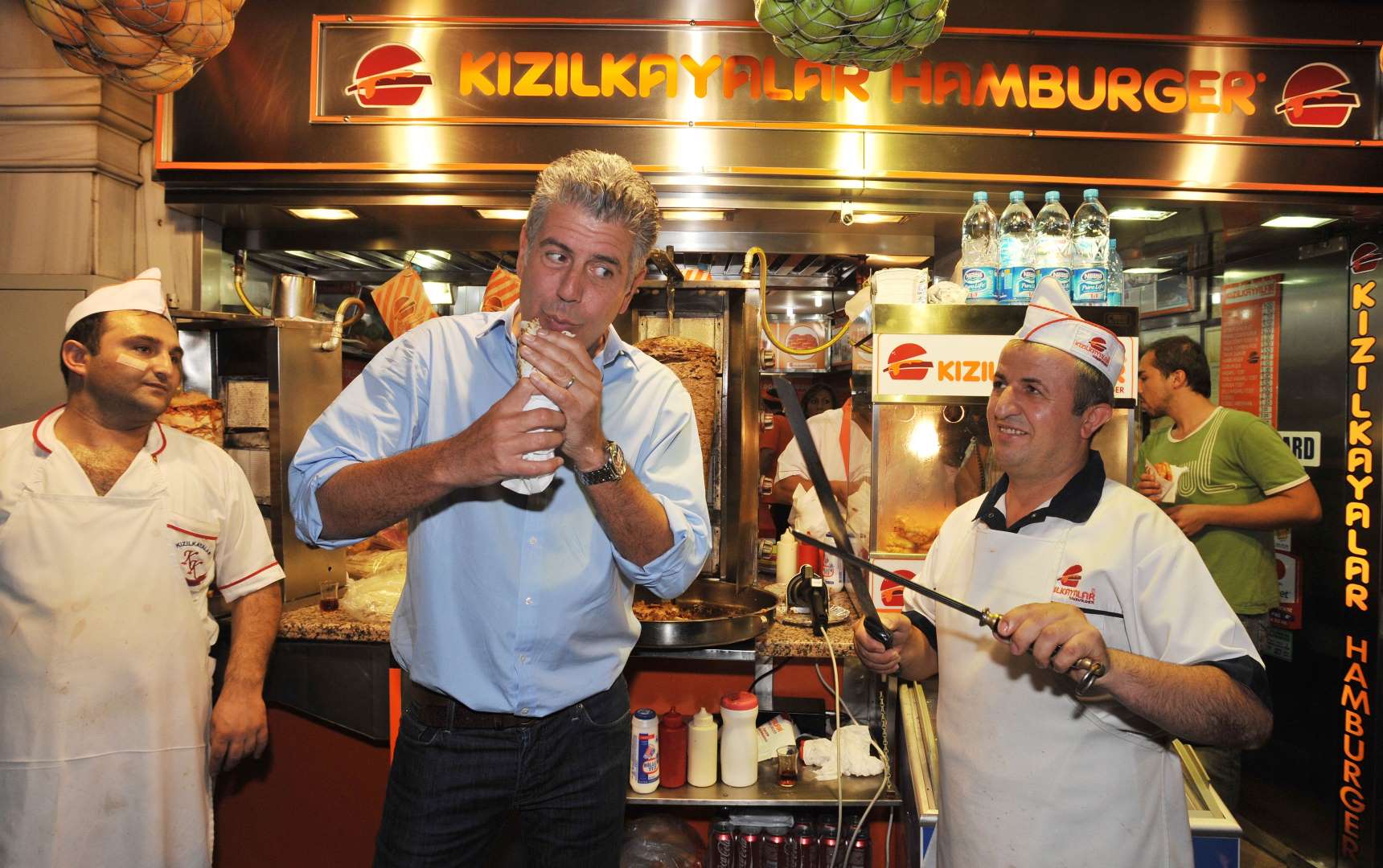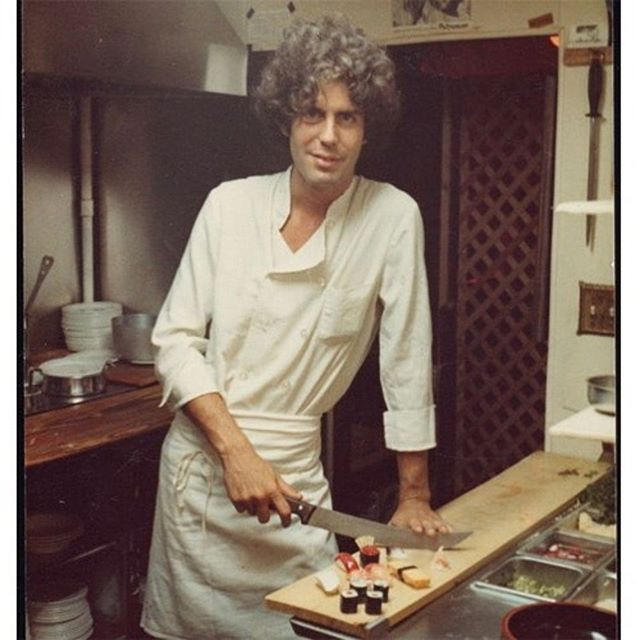Why You Should read: Kitchen Confidential, Anthony Bourdain
By Luke Frostick
It’s fucking raw!
Gordon Ramsay
I don’t normally approve of it when people gush about a celebrity death. Yes the circumstances can be tragic and their loss to their art or field irreparable, but ultimately I think these things should be approached with stoicism and respect for the family and friends who are actually grieving. That being said, I hurt when Anthony Bourdain died. I had to have a sadness kebab at an authentic street-side shop to recover.
It came as a particular blow as somebody who enjoyed eating, traveling and writing in equal amounts. Bourdain was a guy who made those things his life and got paid to do it. He used his unique connection with food to explore, in his laid back way, some of the truths of humanity. Seriously, go back and watch his No Reservations on Istanbul. you’ll struggle to find a travel show that treats this city with that much care. It is always jarring to be reminded that somebody you respect, and if I'm honest, you envy, can still feel that life has nothing for them. So it was with a heavy heart that I started flipping through Kitchen Confidential, the book that overnight made Bourdain a culinary sensation. It has been popping up in bookshops regularly in the last few months, the publishing industry never one to miss out on sweet sweet death-profits. Pick it up, it’s great.
Inside-industry books can be very interesting, particularly if we interact with the said industry all the time. We all eat in restaurants, but we very rarely think about what goes on beyond the kitchen doors (until our steak is undercooked, then we are all opinion). The way that cooking and food is usually portrayed schizophrenically jumps between the elite chefs permanently one more collapsed soufflé away from the killing spree and cuddly, jumper-wearing home cooks prepared to wrap you up in a blanket of upper middle class coyness and lull you to sleep… “Shhh, shhh everything’s fine, have some artisanal cheese, Thai noodles, avocado… shh…. shh drink the organic mulled wine it’s got a special ingredient in…” Bourdain was neither of those things, his perspective was that of the vast majority of cooks from guys working in greasy fry shops to those in vast commercial kitchens, and small vanity-project bistros, the places that we eat in every day.
If you can find another travel show where they visit an islak hamburger shop, I’ll be amazed.
The book takes the form of a biography of his time in the industry interspersed with chapters on cooking advice, the love between a chef and his sous chef & the delusions of owners. The biography takes you through from his childhood and his realisation (in France of course) that food was important, his start in the cooking industry, culinary college, and then working his way up through all the positions a chef can take until eventually running a kitchen with his own, as he puts it, brigades of pirates, degenerates and thieves. Filled with wild anecdotes of kitchen misbehaviour, drugs, sex, rock and roll, more drugs, truffle oil. You get the picture. It captures the combination of awful practices, bleak hours, myriad of injuries, sexual harassment and cursing, simultaneously explaining why people still choose to live that life. There is a particularly powerful chapter towards the end of the book where he goes through blow by blow an average day in the life of a chef and damn by the end I almost wanted to get up at 5:00 the next day and join him on the line… Almost.
It’s all fun stuff. The anecdotes, characters and asides are are crazy enough that Bourdain wouldn’t need to be a great writer to make them work. He is, however, a good writer with the distinctive voice and dry sense of humour that would make his television shows so memorable. Together he makes the book not only an interesting read but a real pleasure. I laughed out loud numerous times throughout.
The only problem from a writing point of view is that sometimes the main narrative of Bourdain's progress through the industry seems confused, missing sections, which isn’t helped by some of the aside chapters falling out of chronology with the main narrative, confusing me at points. This problem might be in part due to the the drug issues that Bourdain was having and it is possible that he himself wasn’t super sure about the order details of events during those phases of his life.
The drug issues that Bourdain struggled with adds a needed amount of self-awareness. By talking about his own addiction, he his able to present himself and the story not as just a smug tell-all but as equally flawed as the over the top, dishonest and delusional people he worked with.
What is nice about Kitchen Confidential is that it isn’t really for me. It is a book for people in the industry. For those behind the line. It doesn’t aim to be a grim exposé or a back-patting self-congratulation of an industry insider. He was trying to tell his story and by extension reflect the realities of the world that he inhabited. From that perspective, the book is an overwhelming success; one that I think cooks, chefs and waiters round the world can read and recognise his words as truth. From the perspective as an outsider and a ghastly food nerd myself, it is fascinating to see the unsanitary truth (did you see what I did there? DID YOU?)
While reading this book the thing that struck me was how universal it has the potential to be. Sure, chefs here in Istanbul probably have different problems, have less sex during service (maybe) and do less heroin (also maybe), I would be willing to bet that the similarities far outweigh the differences. That for people in the industry there is so much truth here and for people outside there is a fascinating glimpse into the lives of people we interact with on a daily basis, but that, if we are honest, rarely think aboutKitchen Confidential is their story, or at least a version of it.



